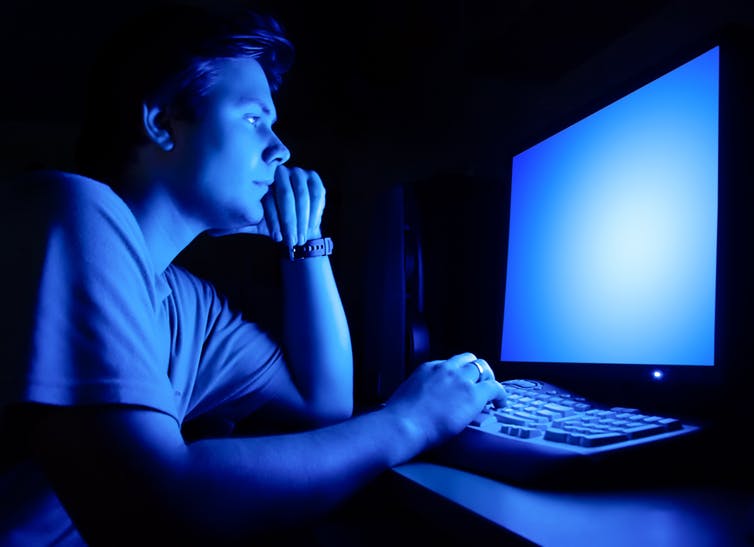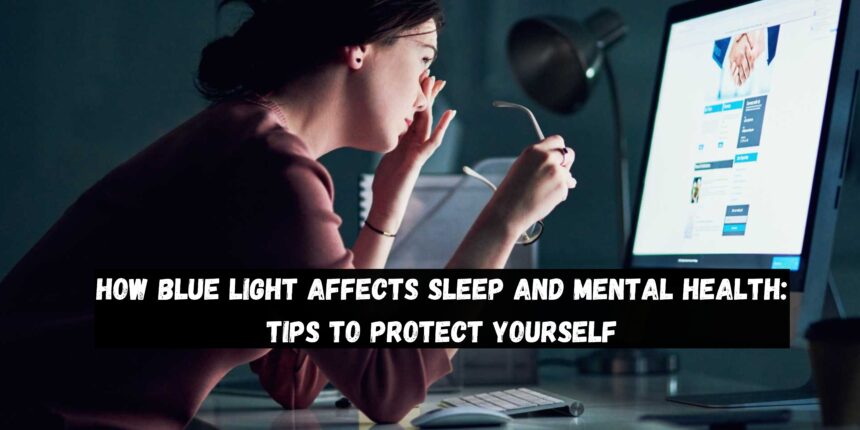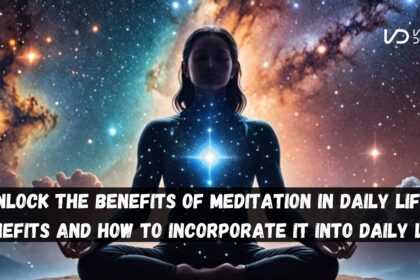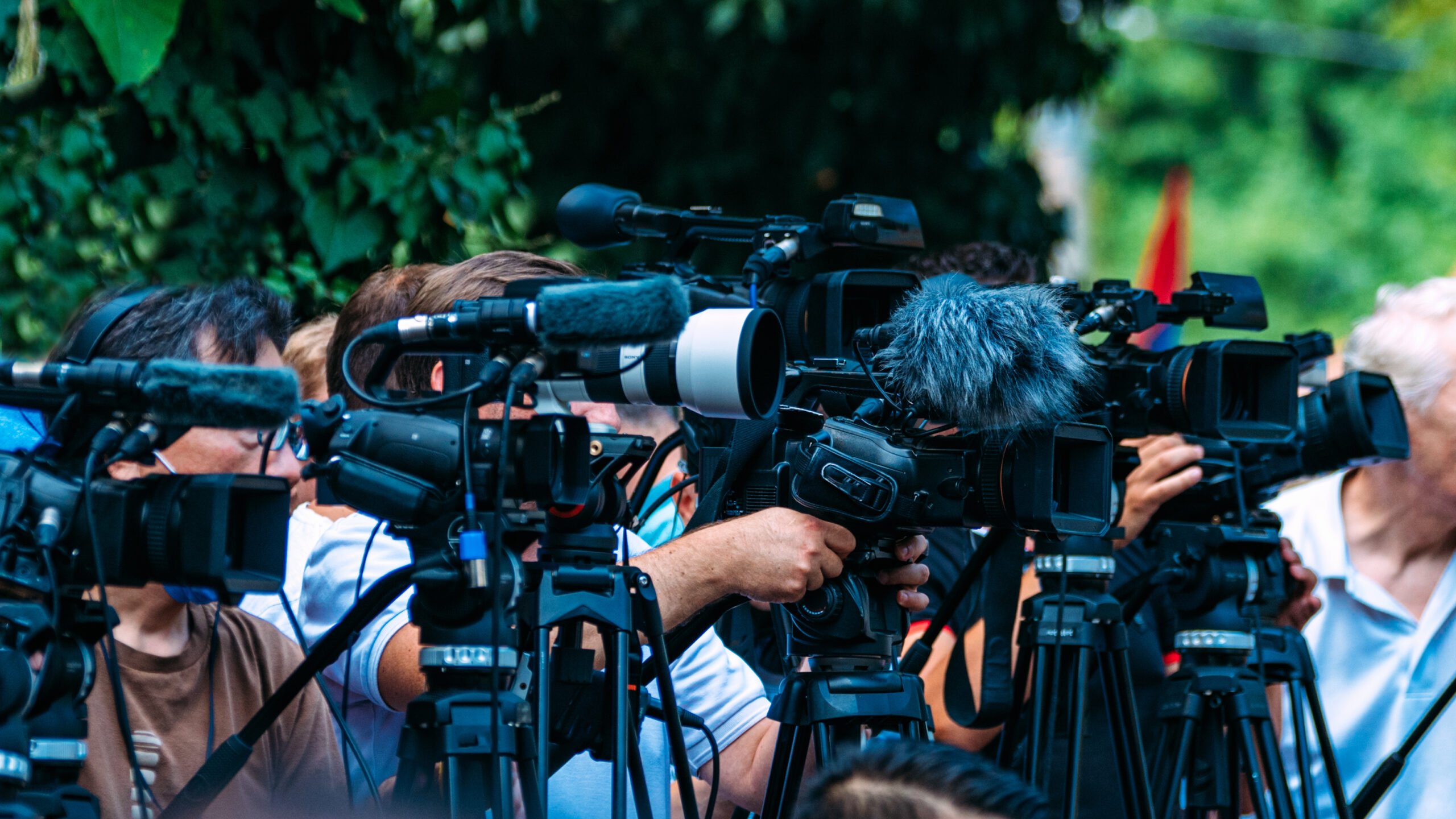In today’s digital life, it is very easy to let a little sleep go when we have our screens. Whether it is our smartphone, computer, or even the television, what with the blue light in them, we cannot help being influenced by it. Very few people know the Impact of Blue Light on Sleep and Mental Health. So now, let’s find out how blue light affects our bodies and what we need to do to minimize its unhealthy impacts.
What is Blue Light and How Does It Affect Us?
Blue light is a high-energy visible light, emitted by different digital devices such as smartphones, laptops, tablets, and even LED lights. While most types of light emit energy and cause a reaction in the human body, blue light emits a shorter wavelength and greater energy, hence a higher impact on our bodies. Even though it is normal to be exposed to blue light during the day due to the sun, excessive exposure in the evening before sleep has some undesirable effects.
Its disadvantage is that it impacts the release of melatonin, which controls our sleeping and waking time. Melatonin normally peaks at night as darkness falls to indicate that sleep is in order. The presence of blue light impedes the production of melatonin especially when it starts to get dark, hence trouble sleeping. It can seriously affect both our physical and mental states.
Blue Light Effect on Sleeping: How Technology May Keep You Up All Night
It will have the most direct and immediate effects on our sleep patterns. Research has proven that screen time before bed delays the onset of sleep and reduces sleep quality. If you ever woke up at night unable to fall asleep after too much screen time, you must have felt the sleep-disturbing effects of blue light.
When we look at our devices, especially that hour or two before bed, our brains are still on, because the blue light behaves like daylight and makes our brain think it’s still daytime. This longer exposure to blue light confuses the circadian rhythm and makes it harder to unwind and prepare for good sleep.
Read more about How Intermittent Fasting Works: 5 Surprising Benefits for Your Health
What Can You Do to Protect Your Sleep?
Some simple ways to diminish the impact of blue light during sleep are as follows:
Apply Blue Light Filters: Most have the inbuilt feature known as blue light filters and night mode. Activate these blue light filters at night time to reduce the emission from screens.
Wear Glasses that Block Blue Light: Specific glasses are made such that they block blue lights and can be quite valuable for those who spend a longer period staring at screens.
AVOID SCREENS BEFORE SLEEP: Try to disconnect any digital device at least half an hour before you sleep. Engage in activities that can relax you, like reading or meditation.
All these precautions will avoid the negative effects of the blue light on your sleep since your body will be at rest and recharged in preparation for the next day’s activities.
How Blue Light Affects Mood and Cognition

Besides reducing sleep, blue light has the effect of interfering with the mental state. The sleep disorder linked to blue light exposure leads to many other psychological conditions, such as anxiety, depression, and mood swings. More cases of stress and irritation are linked to sleep deprivation; this affects your work and personal life.
Exposure to blue light and disruption of circadian rhythms can also impair cognitive function. We are less able to concentrate, make decisions, and complete tasks without restorative sleep. This can lead to frustration, decreased productivity, and mental fatigue.
What Can You Do to Protect Your Mental Health?
Here are a few takeaways to ensure that your mental well-being remains in place despite how blue light hurts you:
- Prioritize Sleep: Sleep is paramount. Keep your bedtime routine healthy, minimize evening blue light exposure, and make sure you do the aforementioned.
- Take Breaks During the Day: Take regular breaks during the day if you’re spending long hours on screens. Give your eyes and mind a rest.
- Practice mindfulness: Mindfulness exercise can diminish your mental stress with the help of either deep breathing or meditation with the blue light coming from a screen.
Follow these habits, and you shall keep both your sleep and mental well-being safe while maintaining your mental balance and getting back on track.
How to Find the Right Way to Handle Blue Light Exposure
There may not be much we can do about blue light exposure by our screens in this fast digital world, but how that light affects our ability to sleep and our well-being need not be permanent if the relationship is understood.
Protect yourself against the impact of blue light by using blue light-blocking devices, taking breaks from screen time, and employing healthier sleep habits. Being aware of our screen time and time spent exposed to artificial light will help sleep and mental well-being remain a priority.










